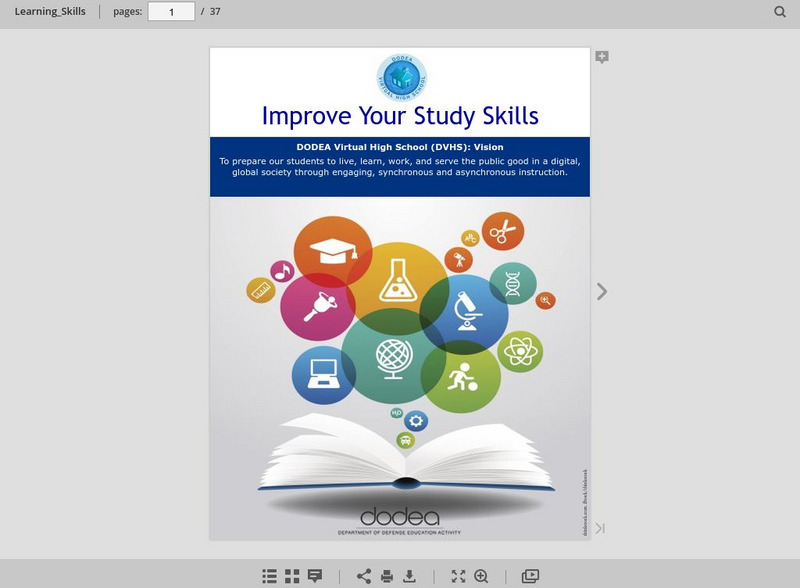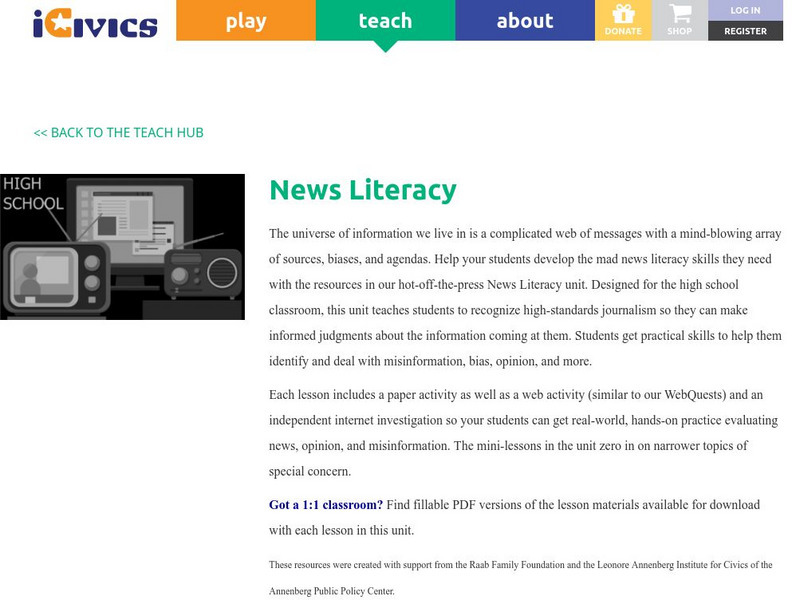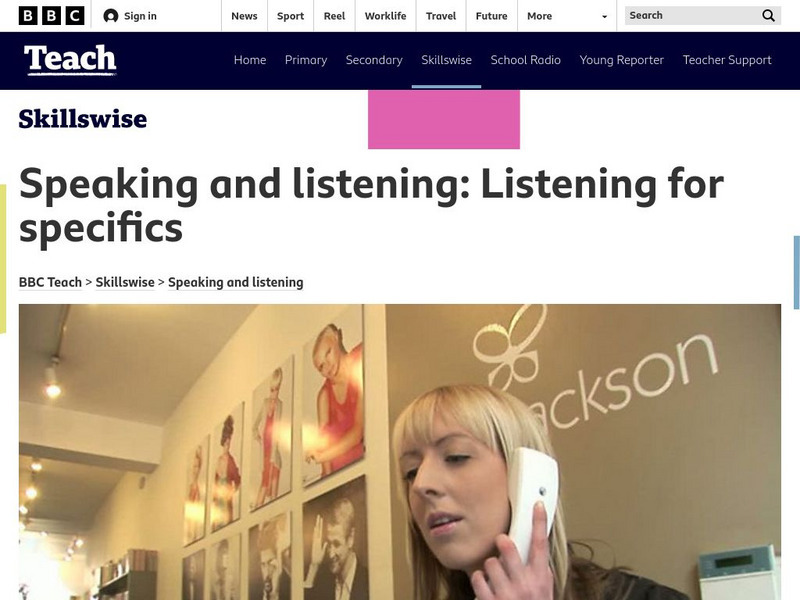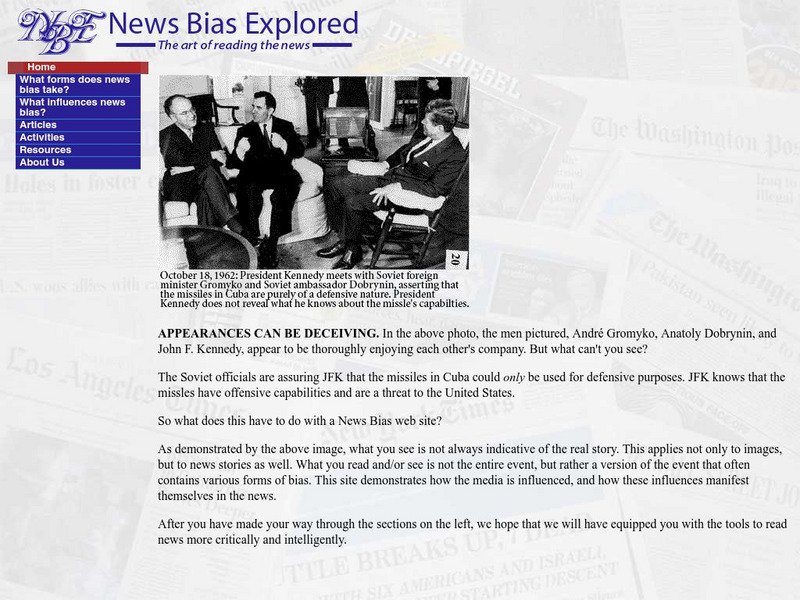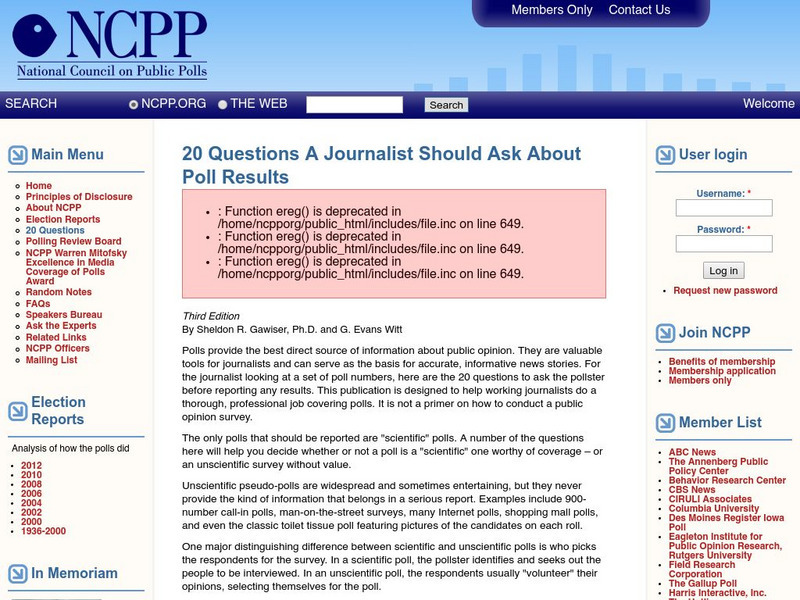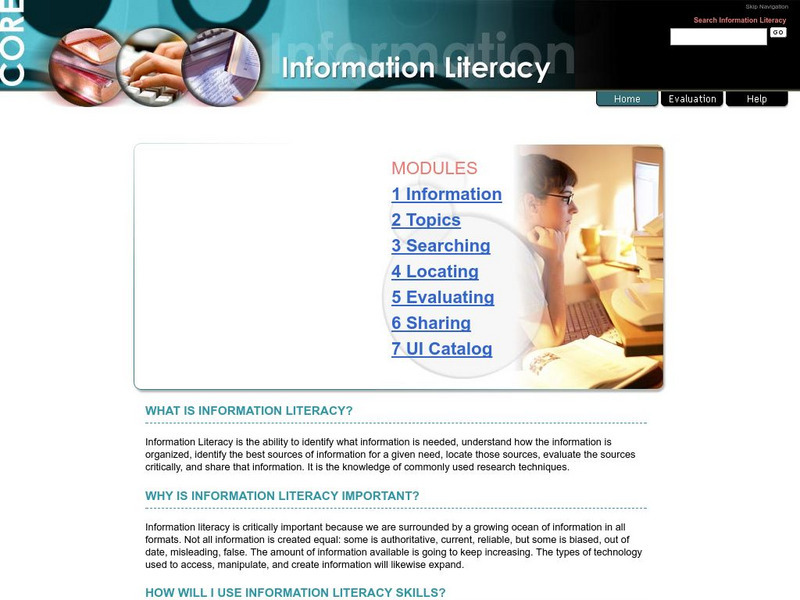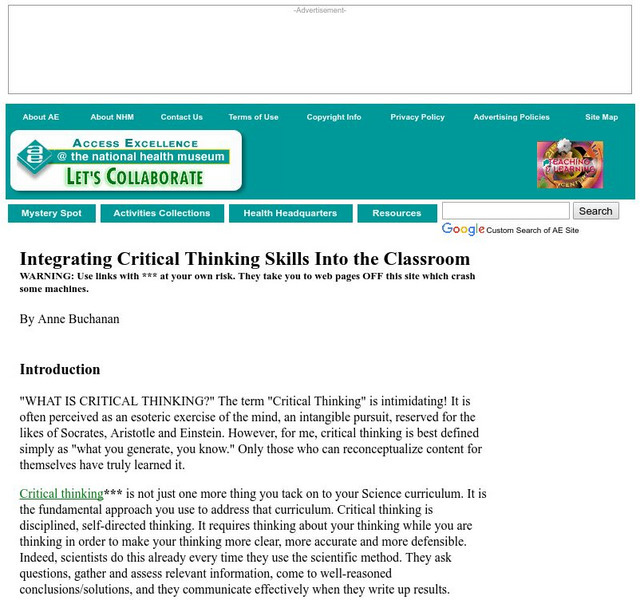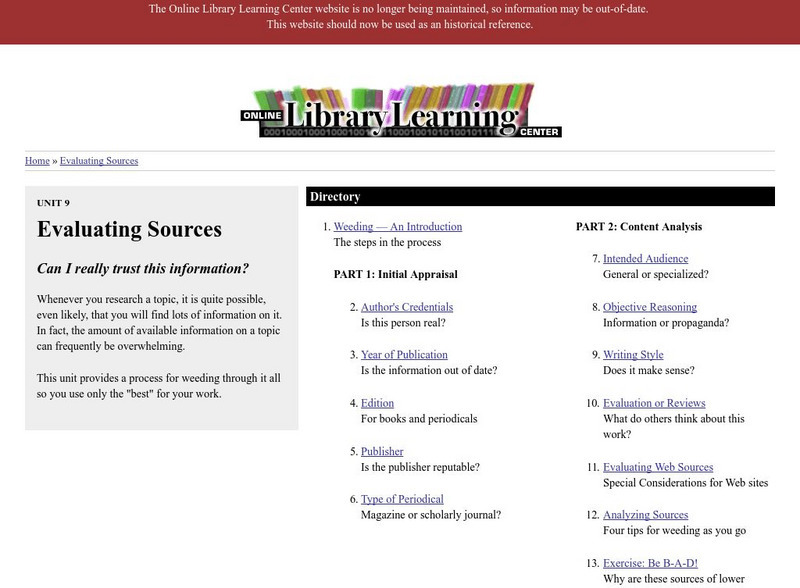Texas Education Agency
Texas Gateway: Analysis of Relative Values of Specific Data, Facts, and Ideas
[Accessible by TX Educators. Free Registration/Login Required] In this lesson, students can practice finding specific types of sources and learn the questions to ask when evaluating information for a persuasive essay.
Department of Defense
Do Dea: Improve Your Study Skills
Having trouble studying for tests or comprehending new material? This in-depth guide provides a multitude of ways to help you acquire reading and critical thinking skills necessary for understanding new material.
NPR: National Public Radio
Npr: Five Ways Teachers Are Fighting Fake News
Since a recent Stanford study showed that students at practically all grade levels can't determine fake news from the real stuff, the push to teach media literacy has gained new momentum. This article gives five quality examples of...
Texas Education Agency
Texas Gateway: Analyze the Relevance, Quality, and Credibility of Evidence
[Accessible by TX Educators. Free Registration/Login Required] In this lesson, students will learn to analyze the quality, relevance, and credibility of evidence used to support an argument.
Lumen Learning
Lumen: Building Credibility Through Source Integration
Well-integrated sources build credibility in several ways: Source material adds evidence and support to your argument, the signal phrase highlights the reputation and qualifications of the source, and effective citation makes it easy for...
National Science Teachers Association
Nsta: Science & Engineering Practices: Obtaining, Evaluating, Communication
This site from NSTA includes a progression of the Science and Engineering Practice for obtaining, evaluating, and communicating information. In addition, thereare performance expectations that make use science and engineering practices.
iCivics
I Civics: News Literacy
Use this library of mini-lessons to teach students to recognize high-standards journalism so they can make informed judgments about the information coming at them and to help them identify and deal with misinformation, bias, opinion, and...
BBC
Bbc Skillswise: Listening for Specific Information
This tutorial presents a video, factsheets, and worksheets for learning how to listen for and understand information. It looks at how to handle different situations, e.g., arranging a delivery, asking questions about a product before...
PBS
Pbs Learning Media: News and Media Literacy
This collection, which includes videos, blog articles, student handouts, lesson plans, and tip sheets for families, helps students identify, analyze, and investigate the news and information they get from online sources. Media literacy...
PBS
Pbs Learning Media: Why Is Fake News So Effective?
This lesson frames the controversial issues of fake news and trust in the media with the historical context of yellow journalism and sensationalist reporting. Students learn strategies for improving their media literacy and will be able...
PBS
Pbs Learning Media: News and Media Literacy Collection
This collection, which includes videos, blog articles, student handouts, lesson plans, and tip sheets for families, helps students identify, analyze, and investigate the news and information they get from online sources. Media literacy...
Arizona State University
Arizona State U.: Research Success for High School Students: Evaluating Sources
A collection of resources for evaluating sources. Topics covered include knowing your sources, assessing whether a source is scholarly, the CRAAP Test (includes chart, worksheet, and website evaluation sheet), and how to identify fake news.
University of California
University of Cal: Critical Thinking in an Online World
This article discusses why and how to encourage the development of critical thinking skills for students conducting research on the Web. The author even presents an overview of a project that you could adapt to your class.
University of Michigan
News Bias Explored: The Art of Reading the News
Real-life examples, interactive headline and image games and brief explanations make this an attractive site for learning to recognize media bias.
Lumen Learning
Lumen: Boundless Communications: Credibility Appeals
In this Boundless Communication, students will learn about the importance of credibility in public speaking. There are four sections: defining credibility, types and elements of credibility, building credibility, and ethical usage....
Other
Ncpp: 20 Questions a Journalist Should Ask About Poll Results
The NCPP site asks 20 questions journalists should consider when using poll information. Click on each question to get a discussion of the answer. A click on a sidebar gives analysis of polls from elections from 1936 to present.
Other
Web Treasure Hunt: 10 Quest. To Test Newsroom Literacy
This is a great exercise for critical thinking, problem solving and sharpening web search skills. Plenty of explanation accompanies the answers.
Other
Ic You See: T Is for Thinking: Guide to Critical Thinking
This clearly presented tutorial can be used by individuals or could be presented to a class. Be sure to take the interactive quiz for some thought-provoking exercises.
Other
University of Idaho: Information Literacy
This learning module focuses on Information Literacy including internet basics, locating, evaluating, sharing, and documenting information.
ReadWriteThink
Read Write Think: Hoax/no Hoax? Online Comprehension and Evaluation Strategies
Students use research-based comprehension strategies to read and evaluate websites, and practice analysis by comparing hoax and real websites and by identifying false or misleading information. SL.11-12.2 Eval&Integrate sources
National Health Museum
Access Excellence: Integrating Critical Thinking Skills
This site from Access Excellence explores how, as an educator, you can incorporate critical thinking skills into the classroom. Content focuses on how to cover content so that students can grasp information, engage with the teacher, read...
Other
Online Library Learning Center: Evaluating Sources
Use this "Weed and feed," approach to get only the best resources for your research project.
Johns Hopkins University
Johns Hopkins University Sheridan Libraries: Information and Its Counterfeits
Distinguishing information from propaganda, biased reporting and misinformation is an important skill. This short article defines each of these, and provides examples of each.
Other
Flickr: Critical Thinking Skills Poster
A downloadable critical thinking skills poster based on the original six levels of Bloom's taxonomy.



